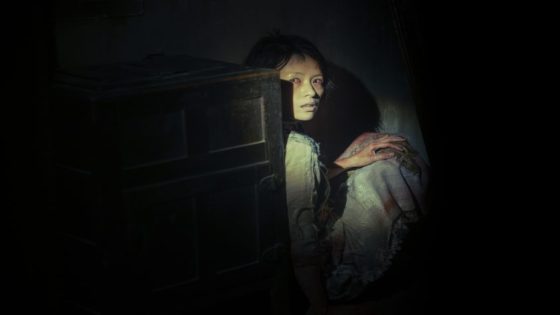Giving the traditional, star-driven period epic a gloss-coating of topicality, Peter Ho-Sun Chan’s “She’s Got No Name” is based on a notorious real-life murder case that unfolded against the turbulent backdrop of 1940s China. And although it’s probably most notable for providing Chinese actress Zhang Ziyi with a remarkably de-glammed central role, it is the setting, rather than the sincere but only tentatively feminist storyline, that will likely give this handsome, lengthy movie its international appeal. The recreation of mid-century Shanghai remains impressive even as Chan’s evident admiration for his heroine’s survival instinct starts to become rote, locking Zhang into a screenplay (co-written by Shi Ling, Jiang Feng, Shang Yang and Pan Yi-ran) that gives plenty of depth to her character’s anguish, but little breadth to grow.
Zhang plays Zhan-Zhou, a poor, illiterate working-class woman with a birthmark grazing her forehead and cheek, whom we meet as she scurries from her alley tenement and onto a trolley car, trying to avoid attention. She is clutching a large canvas bag, stained by a spreading bloodstain — from the beginning, there is little doubt that she committed the crime for which she will soon be arrested by showboating Deputy Police Commissioner Xue (Lei Jia-yin): that of murdering and dismembering her husband (Wang Chuan-jun). His head, and a fish knife used in the killing, will never be recovered.
When Zhan-Zhou killed her pawnbroker-turned-luckless-gambler husband —nicknamed “Big Bear,” which is appropriate for how he looms over his timid, downtrodden wife — it was 1945 in occupied Shanghai. But that was also the year the Japanese puppet government was ousted and a new regime installed, during which the courts, in an effort to distance themselves from the prior administration, took a new look at certain high-profile cases. As Zhan-Zhou is tried and retried for this capital crime, Xi Lin (Zhao Li Ying), an almost cartoonishly glamorous local reporter and playwright, takes up her cause, influencing public opinion with her columns and performances, and contributing to the then-novel idea that, when it comes to ongoing domestic assault, there might be different shades of “guilty.”
As Zhan-Zhou, Zhang is the stoic, bloodshot eye of the storm, having the dissociated air of a long-abused wife terrified not only for her life but for her afterlife too. One of her crime’s grislier aspects — the post-mortem decapitation — is explained by the ill-educated Zhan-Zhou’s mystical belief that this was how she could prevent being reunited with Big Bear in their next incarnation. But with Jake Pollock’s careful cinematography almost weighed down by its earnest attention to Sun Li’s lavishly stage-managed production design, it’s up to the supporting cast to generate most of the momentum. Even if some, like Xi Lin and Song (Jackson Yee) a fortune teller prone to uselessly cryptic pronouncements about Zhan-Zhou’s fate, are rather tokenistic representations of larger forces or factions.
Commissioner Xue, a handy avatar for the despised Japanese collaborator class, falls on hard times after the Nationalists take Shanghai and nurses a personal grievance against Zhan-Zhou as the obscure architect of all his woes. But there are decent men too, such as Ho (Da Peng) Zhan-Zhou’s locksmith neighbor who witnessed Big Bear’s abuse. And there’s Ye (Fan Wei, giving one of the film’s most sympathetic performances), the accused woman’s new attorney, who comes to a deeper understanding of the scourge of domestic violence — especially as it may pertain to his beloved daughter, who has recently married into wealth.
The subplot about Ye’s daughter establishes how spousal abuse can flourish in the gilded cages of the moneyed classes as much as in the tatty slums of the impoverished. But not all of Chan’s film is as subtle or clear-sighted. There is much less context, for example, given to the second change of regime that occurred during the span of Zhan-Zhou’s story — the 1949 Communist overthrow of the Nationalists — even though, at one point, we visit a labor camp in 1951. This de-focusing contributes to the slackening pace in the last third of this never-very-pacy film, and to its realistic, but nonetheless anticlimactic impression that however much we might admire its reticent heroine, her story is less revolutionary within the grand sweep of Chinese history than it is a small, poignant anomaly.
Source Agencies



